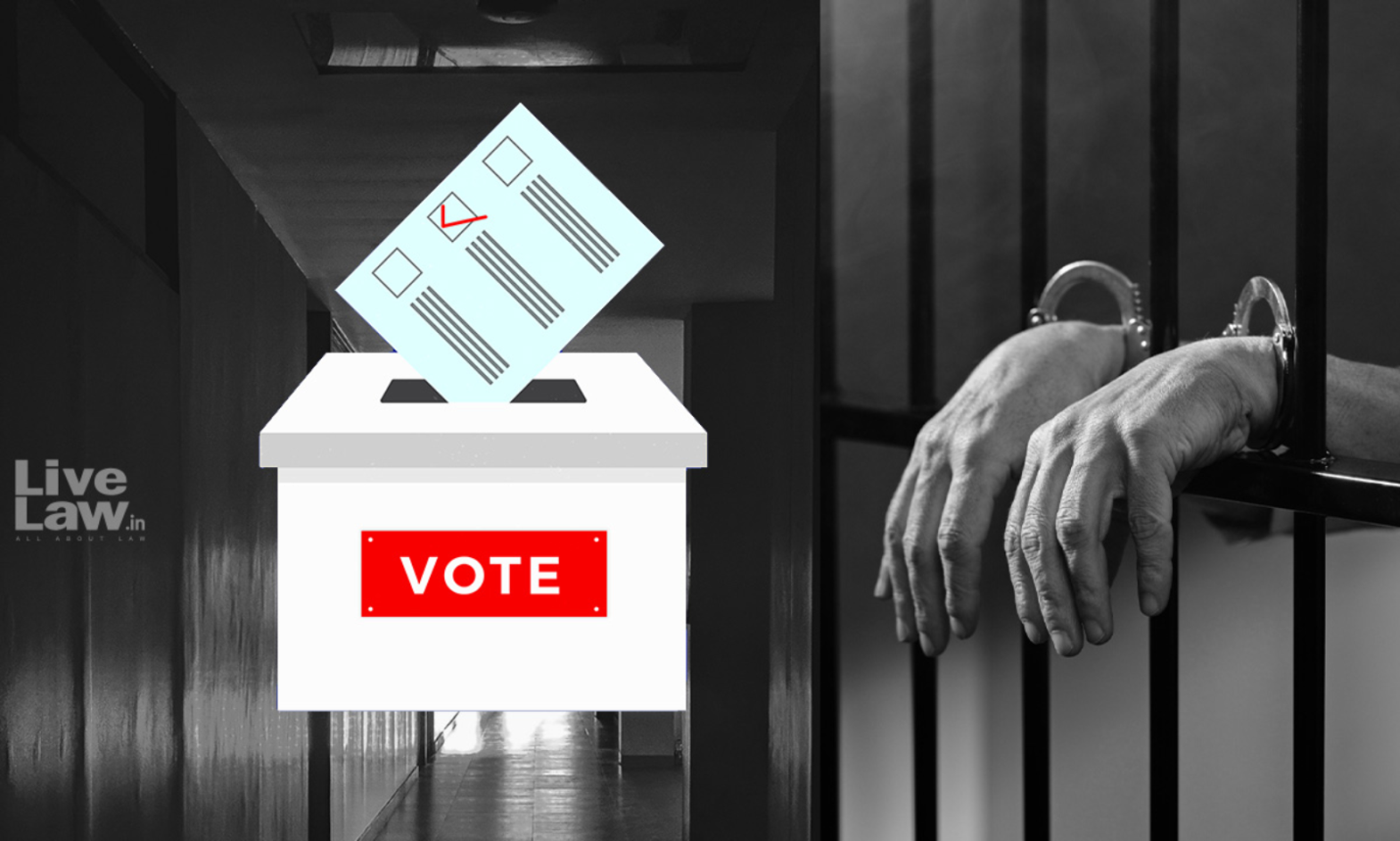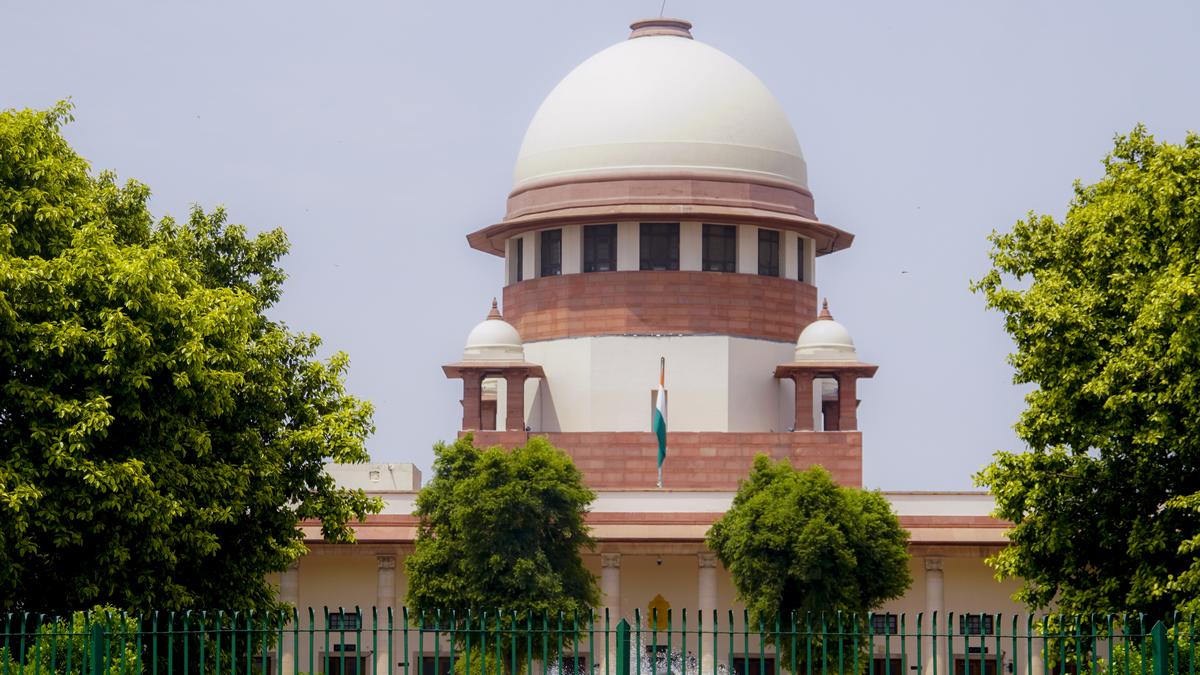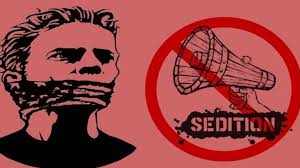Description

Copyright infringement not intended
Picture Courtesy: https://www.livelaw.in/columns/constitution-of-india-prisoners-section-625-representation-of-people-act-right-to-vote-article-191-article14-204959
Context: Individuals facing criminal charges can contest elections in India unless convicted, but they are barred from voting while in prison, similar to other accused individuals across the country.
Details
- The legal status of the right to vote and the right to be elected, especially in the context of individuals who are imprisoned or facing criminal charges, is governed by specific provisions within the Representation of People Act, 1951 (RP Act).
Right to Vote
- Statutory Right, Not Fundamental Right: The right to vote, or the right to elect, is considered a statutory right under Indian law, not a fundamental right enshrined in the Constitution. This means that it is subject to regulation and limitations imposed by laws like the Representation of People Act, 1951 (RP Act).
- Disqualification from Voting while in Prison: Section 62(5) of the RP Act imposes a restriction on voting rights for individuals confined in prison. It prohibits any person from voting in elections if they are jailed under a sentence of imprisonment or are in lawful police custody. This includes both individuals serving sentences and those detained pending trial.
|
Challenges to the restriction on voting rights for prisoners based on the right to equality have been brought before the courts. However, courts have upheld these restrictions, stressing practical limitations, election integrity, and the need to keep people with criminal records out of the political process.
|
Right to be Elected (Contesting Elections)
- Disqualification on Conviction: Section 8 of the RP Act provides for disqualification from contesting elections upon conviction for certain offences. A person convicted of any of the specified offences is disqualified from contesting elections to Parliament or state legislatures from the date of conviction onwards, with an additional six-year disqualification from the date of release.
- No Disqualification on Charges Alone: Disqualification to contest elections applies only upon conviction and not merely based on charges framed against a person. This means that individuals facing criminal charges can still contest elections until they are convicted.
- Exceptions to Disqualification: The Election Commission of India (ECI) has the authority under Section 11 of the RP Act to remove or reduce the period of disqualification. This authority has been used in cases where convictions have been stayed pending appeal to higher courts.
Representation of the People Act 1951 (RPA)
- The Representation of the People Act of 1951 (RPA) is a fundamental component of Indian democracy. It establishes the foundation for conducting parliamentary and state legislative elections, ensuring that every citizen has the right to vote.
- The RPA covers a wide range of election-related issues, including voter qualifications and disqualification, constituency delimitation, electoral roll preparation, candidate nomination, polling conduct; vote counting, and results declaration. By outlining these protocols in detail, the RPA assures that the election process is transparent, accountable, and fair.
Purpose and Scope
- The RPA was enacted to provide a legal framework for conducting elections, including qualifications and disqualifications for candidates, handling election disputes, and addressing corrupt practices related to elections.
- It covers elections to both Houses of Parliament (Lok Sabha and Rajya Sabha) and State Legislative Assemblies, outlining rules for candidate qualifications, election processes, and resolution of election disputes.
|
Enactment and Amendment
●The Act was introduced by Dr B.R. Ambedkar and enacted by the provisional Parliament before the first general election in India (1951). It was aimed at ensuring the smooth functioning of electoral processes in the newly independent nation.
●Over the years, the RPA has undergone several amendments to address evolving electoral challenges, such as abolishing election tribunals and transferring election petitions to higher courts like High Courts and the Supreme Court.
|
Application to Various Offices
- President and Vice President: The Act provides mechanisms for resolving doubts and disputes related to the election of the President and Vice President, including criteria for disqualification based on constitutional requirements.
- Prime Minister: Provisions exist for disqualification of the Prime Minister if they no longer meet the requisite qualifications to be a Member of Parliament (MP).
- Speaker: The Act outlines grounds for disqualification of the Lok Sabha Speaker, particularly related to wrong certification of bills inconsistent with constitutional definitions.
Disqualification and Electoral Offences:
- Disqualification of Convicted Representatives: The Act addresses the disqualification of Members of Parliament (MPs) and Members of Legislative Assemblies (MLAs) based on criminal convictions, ensuring that the seat becomes vacant immediately upon disqualification.
- Office of Profit: Elected representatives are prohibited from holding offices of profit under specific sections of the RPA and relevant constitutional articles (Articles 102 and 191).
|
Provisions on Political Funding
●The Act allows political parties to receive cash donations of any amount but requires reporting of contributions exceeding a specified threshold (currently ₹20,000) to promote transparency in political funding.
|
Conclusion
- The legal foundation for the right to vote and contest elections in India is governed by statutory regulations under the RP Act, which balances the need for fair elections with accountability and governance concerns. While voting is not considered a fundamental right, the right to be elected has exclusion criteria based on convictions, with exceptions and challenges that continue to change electoral rules and practices.
Must Read Articles:
Election Commission of India
Source:
Indian Express
Wikipedia
|
PRACTICE QUESTION
Q. How can the concerns of underrepresented and marginalised communities, such as women, religious minorities, and lower-caste groups, be better addressed in the electoral process, and what measures can be taken to ensure their effective participation and representation?
|
Array
(
[0] => daily-current-affairs/why-can-accused-persons-in-prison-contest-polls-but-not-vote
[1] => daily-current-affairs
[2] => why-can-accused-persons-in-prison-contest-polls-but-not-vote
)









